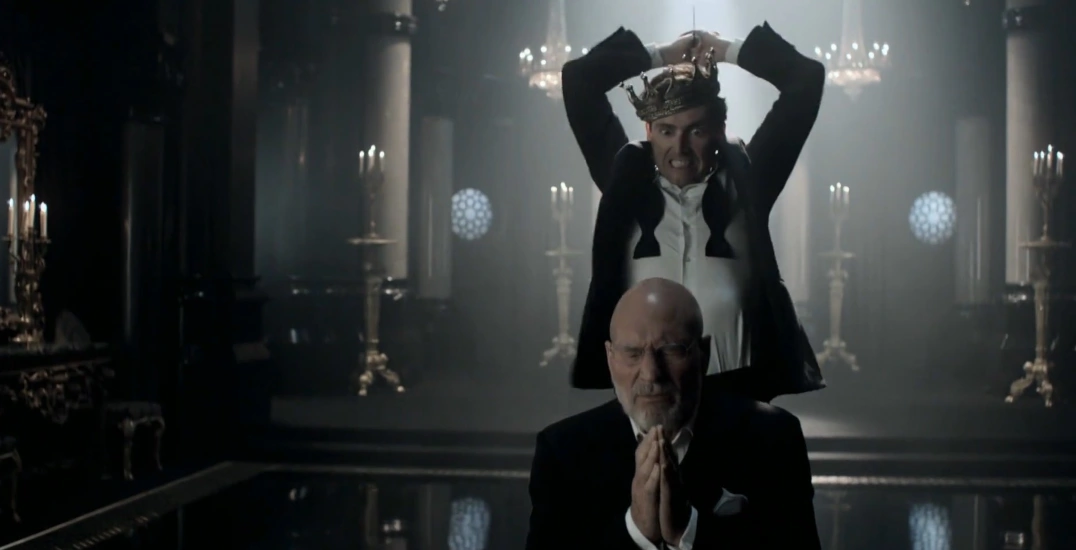
Film-making is in upheaval after the murder of a high-ranking official was represented on screen. The crime, which takes place in a Danish historical drama, has sparked a heated debate in the small world of acting, a hobby in which people dress up and pretend to be someone they are not. While supporters claim movies deserve respect as an art form, critics are quick to point out to their darker side.
GOOD ACTING
Few have heard of Burbank, a small city in California, or the wave of mixed-raced acting hobbyists that came from it. “Acting was my escape”, says Calhamer, one of the main actors in the film. Born to foreign parents, he immigrated to the United States in 2013. Growing in poverty, he started a small Youtube channel in which he pretends to be famous characters from games and comic books. Irreverent and occasionally insightful, he found an audience amongst dissatisfied millennial teens.
“Acting is not for children anymore” He says while staring out of the window. “We have better films now. It’s no longer the 80s, we are ready to tackle truly adult themes like sex and violence”. While normally understood as entertainment for children, a slew of new releases are trying to buckle that trend, aiming themselves at a new, older audience.
Calhamer was working on a new film tackling themes of doubt, revenge and honor when disaster struck. His plot to usurp his brother’s throne got a little too real when another actor accused him of creating an unsafe experience. “There are limits”, said his colleague Mr Feld in an interview to the New York Times. “Not only he murdered my father in the film, he has the gall to say I shouldn’t get upset over it”.
As his defense, Calhamer claimed to be “acting in character”. In the hobby’s jargon, this expression is meant to convey that his actions did not represent his personal opinion but that were part of the make-believe of the film. Hence, he shouldn’t have acted in any other way. “It’s all in the script” he said. “If Feld didn’t want me to murder his father he shouldn’t have participated”.
 Not everyone is convinced by that argument. “The whole thing about following the script is a strawman” says a well-known online critic. “We are responsible for the negative experiences we cause to others. He could have just diverged from it”. Another is more succinct “The goal of acting is to have fun. If you cause other people to have less fun, I don’t think you are a good actor”
Not everyone is convinced by that argument. “The whole thing about following the script is a strawman” says a well-known online critic. “We are responsible for the negative experiences we cause to others. He could have just diverged from it”. Another is more succinct “The goal of acting is to have fun. If you cause other people to have less fun, I don’t think you are a good actor”
FILM DESIGN
Others, however, find fault with the script itself. “The issue is actor elimination”, says Mr Poisson from the University of Redmond. “Removing actors from play, often violently, is a relic from a bygone era where safety wasn’t considered important.” Modern films, he explains, now work to ensure everyone has a good time. “If a movie leaves actors frustrated, that’s bad design”.
“The way we act in movies affects how we behave in the real world” says Poisson. But what about real-life violence? Here, the issue isn’t so clear. According to the American Psychologist Association, the link between violent films and aggressive behaviour is “One of the most studied and best established”. A Chicago politician was even more blunt “We need to treat violent films the way we treat tobacco, alcohol, and pornography”.
In the UK, the release of a new film with explicit torture scene has many worried. It’s believed that the lack of interactivity may prove to be a strong factor in how impressionable teenage minds see films. “It’s nothing like a video game” says a senior industry analyst. “In a game like Grand Theft Auto V, you are in control. In this movie, however, the reward is given without responsibility”.
Some defend their hobby, claiming that the torture scene was presented for artistic reasons. But are films an art form? Sackson, one of the nation’s best game critics has a clear answer “No one in or out of the field has ever been able to cite a movie worthy of comparison with the great poets, game-makers, poets, novelists and poets”. To which he added “Show me a man who prefers a movie to Wolfenstein 3D, and I’ll show you a fool.”
 Fans jumped on the opportunity to recommend some of their favourite films “Fitzcarraldo“, “Koyaanisqatsi“, “Batman: The Dark Knight“. But Sackson didn’t budge “Movies represent a loss of those precious hours we have available to make ourselves more civilized”. Faced with these arguments, even film aficionados concede he might have a point. “Perhaps movies aren’t good enough to be art yet”, confessed a film journalist.
Fans jumped on the opportunity to recommend some of their favourite films “Fitzcarraldo“, “Koyaanisqatsi“, “Batman: The Dark Knight“. But Sackson didn’t budge “Movies represent a loss of those precious hours we have available to make ourselves more civilized”. Faced with these arguments, even film aficionados concede he might have a point. “Perhaps movies aren’t good enough to be art yet”, confessed a film journalist.
GROWTH STRUGGLES
Regardless of ongoing controversies, the world of film-making is ready to make improvements. Earlier this month, one of film’s largest publishers vowed to make its slate of “Classics” available for new audiences. “We are updating all our old movies and bringing colour and other quality of life improvements to them” says the studio’s head of marketing.
“We take diversity very seriously” he says while pointing out at the posters in his office “I was at a company event recently where they had movies from the 60s and 70s. They looked ancient, why would anyone watch them?”. Fortunately, things are getting better “We have removed the old crummy versions of Metropolis and Star Wars from stores, from now on we’ll only offer the best viewing experience”.
Films are being taken so seriously that a minority of actors demand their names to be on the cover. Most aren’t as burdensome, though “We have collectively decided we don’t want credit” says an analog film producer. “The makeup artists are credited separately, though, because they are union”. The whole industry seeks to make films better. According to “rockstar” director Wolfgang Kramer everyone is looking for their own “Tetris moment”, including him.
To do this, he looks at the broader film-watching experience “Our goal is to make movies that look awesome on Instagram” They may publish other movies but how a film looks on a billboard is paramount “If I don’t see how to improve them as a product, very quickly, I just say no” he explains before leaving for work. As his figure dissapears into the horizon, I’m overcome melancholy. Will movies become an art form? Perhaps we’ll soon know the answer.




There’s a few places where you clearly cross over the line into legit film debate topics. Was that your intention? If it was, that was clever dancing.
There are parts that are very much intentional, like the bit about Metropolis and Star Wars. To me the fact that we cannot watch the original version of the latter is a crime, not unlike not being able to play the original version of Portal.
In the end, much of it is applicable to all mediums. The arguments Roger Ebert made against games were the same that were used against cinema and Clinton compared games to tobacco in the same way politicians in the Uk talked about horror movies. I didn’t even have to make up the quotes, most of them are real. I just made a few small adjustments.
I am very flattered you thought it was clever!
Hace poco descubrí tu blog. Estoy disfrutando de leerlo, y esta entrada en particular es magnífica. Una genialidad.
El primer párrafo de la sección ‘But who is Erik Twice’ tiene mucha gracia. Tengo ganas de seguir leyendo más de tu blog.
¡Muchas gracias Delfion! La verdad es que estoy orgulloso de este artículo, me lo pasé genial escribiéndolo. Espero que te sigan gustando las cosillas que saco 🙂